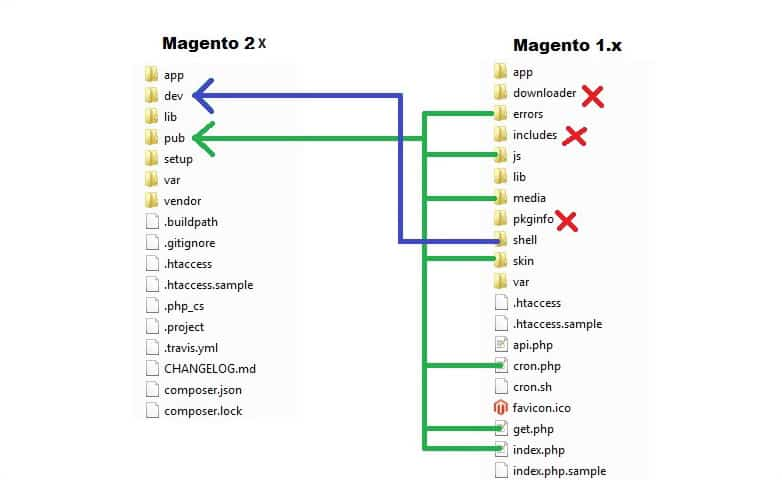

If you have been using Magento and want to migrate to Magento 2, it would mean re-writing almost all your extension codes. It might not be an issue in few cases, since it will give you a chance to refresh and perform things in a different manner.
However, if you have written codes sometime recently, you might realize that very little of the existing codes can be re-used due to changes in Magento 2. And worse could be, taking the existing code and copying it to Magento 2 extension and spending hours trying to fix it, modifying the way many mechanisms work and dealing with lot more complications.
Difference between Magento 1.9 and Magento 2.0

Magento 2 Is Still Changing – Therefore Challenging
If you look closely at Magento 2 code base you will find that not all of it is fully refactored. Magento 2 extension breaks when a change to the core code is made. Many developers are finding the code to be inconsistent at many places, such as usage and non-usage of underscores for variable names, which can be frustrating. There are many more examples similar to this one, which makes it highly imperative to document and adhere to Magento framework throughout the code base.
Challenges Faced While Building for Magento 2
Documentation is Sparse
- DevDocs area is non-searchable.
- There is lack of documentation to help developers
- Though various blogs are available on the subject, it can still be a pain searching for those on Google and investing time and efforts, which could have otherwise been used in core business activities.
Design Pattern Restrictions
- In most cases the code is difficult to navigate, is bulky and verbose, which has been written with the intent of unit testing and is not consistent in use of computer science technique.
- Developers are forced to write codes in a particular manner, which adds to the development time and increases the development cost.
Test Driven Development (TDD)
- Unit tests can be extremely useful, particularly when refactoring and regressing testing codes.
- Writing tests without understanding the framework is actually quite impossible, which makes following TDD while starting to write Magento 2 code extremely difficult.
- Organizations have limited resources, whereas TDD is time consuming, requiring huge budgets and huge amounts of resources.
- It is extremely difficult for companies who are at their initial stage to follow TDD approach from day 1.
The Final Question: Do You Need Magento 2?
Many organizations are still struggling to find answer to this question. Magento 2 is definitely needed for better quality; codes that can be tested, and to keep the technology updated. Magento 2 promises numerous things like reduced conflict between extensions, improved performance, improved quality, to name a few. But organizations have limited resources and a lot to focus on, and therefore building for Magento 2 can be a time taking and cumbersome process. What companies can do in such scenarios is to integrate with a Magento 2 development service provider at the earliest to make the most out of Magento 2.
Contact Us
If you’re interested in using our Magento upgrade services in the near future or need help understanding a little bit more about migrating to Magento 2, please feel free to write to us at info@suntecindia.com, and we’ll take the discussion forward.

